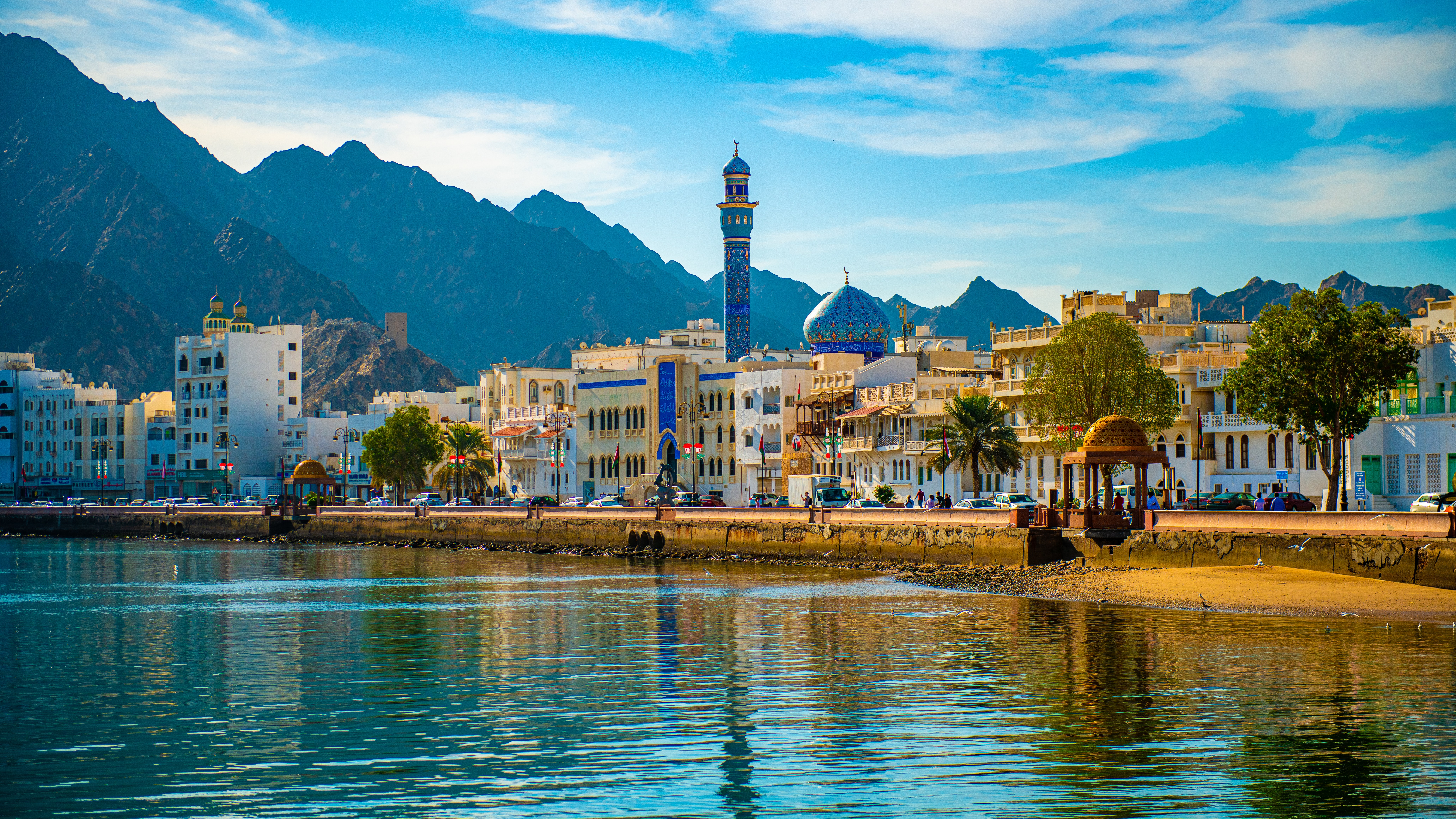Tensions in the Middle East have been rising since large-scale conflict broke out between Israel and Hamas on October 7, 2023. The latest incident was military action by Iran on April 13, 2024, which has caused flights to the region from Europe to be rerouted and has stoked fears of an escalation in tensions.
The Foreign Office has updated its travel advice for many countries in the Middle East, including holiday hotspot the United Arab Emirates, to advise tourists that the situation was “moving fast”. If you’re planning a trip to the Middle East, here’s what you need to know.
What’s the latest travel advice on the Middle East?
At the moment, the Foreign Office advises against all but essential travel to large parts of Israel, and all travel to Gaza and the areas around it, the West Bank and areas near the border with Lebanon and Syria. It also advises against all travel to Lebanon, and is urging Britons there to leave. All holidays to these two countries are therefore cancelled for the foreseeable future.
In addition, since the drone and missile attacks on Israel by Iran on April 13, it has also updated its advice for the neighbouring countries in the Middle East, telling visitors to monitor the situation and follow advice from official channels.
Flights to the region have been rerouted due to airspace closures, and while all technically reopened on April 14, the European Union Aviation Safety Agency recommends that airlines “exercise caution” and notes that “there continues to be an increased potential for miscalculation and/or misidentification at present over Tehran”.
Advertisement
There is also ongoing activity from Houthi rebels in the Red Sea. The Foreign Office says: “Military activity is currently underway in response to attempts by Houthi militants to prevent movement of international shipping in the Red Sea. While the area of activity is limited to the Red Sea and Yemen, there is a possibility that travel advice for nearby countries could change at short notice. You should continue to monitor travel advice and follow any relevant instructions from local authorities.”
● Is it safe to travel to Lebanon right now? Latest travel advice

Are Egypt and Jordan safe for tourists?
The areas in Egypt that the Foreign Office advises against travelling to have expanded slightly. It now cautions against all travel to within 20km of the Egypt-Libya border, and to the Governorate of North Sinai, which includes the Gaza crossing at Rafah. It also advises against all but essential travel to the northern part of South Sinai, the eastern part of Ismailiyah Governorate, the Hala’ib Triangle and Bir Tawil Trapezoid, and the Western Desert with the exception of areas along the Nile normally visited by tourists such as Luxor, Aswan and the Valley of the Kings.
Apart from a strip along the Syrian border there’s no advice against travel to Jordan, where attractions include Wadi Rum, Petra and the Dead Sea. However, some operators are already amending their travel plans in the region. Silversea Cruises has amended its itinerary between Aqaba and Muscat, with passengers disembarking from Aqaba, in order to avoid the Red Sea ports.
● Is it safe to travel to Egypt right now?
● Is it safe to travel to Jordan right now? Latest travel advice

Are there warnings against travel to any other parts of the Middle East and north Africa?
Advertisement
Morocco is considered safe for tourists, as is all of Tunisia apart from its remote border zones. Oman is also considered safe, as are Abu Dhabi, Dubai, Ras al-Khaimah and other UAE states, although the notice about the possible last-minute updates due to military activity in the region applies.
● Is it safe to travel to Tunisia right now?
● Is it safe to travel to Morocco right now?
● Is it safe to travel to Dubai right now?
Is Turkey safe for tourists?
Turkey is a long way from Israel, but the Foreign Office warns that “events in Israel and the occupied Palestinian territories have led to heightened tensions in the region and demonstrations are ongoing in locations across Turkey. Large demonstrations have been reported outside diplomatic missions connected to the conflict in major cities, particularly Israeli diplomatic missions in Ankara and Istanbul.” The advice continues to warn that “terrorists are very likely to try to carry out attacks in Turkey”, adding that most previous incidents have occurred in Ankara, Istanbul or the southeast of the country.
● Is it safe to travel to Turkey right now?
Are airlines still flying to the Middle East?
Virgin Atlantic and easyJet have paused their flights to Tel Aviv until autumn 2024. British Airways resumed a limited service to Tel Aviv from April 2024. Israel’s national carrier El Al is currently still operating direct flights between Tel Aviv and the UK. There are also still flights to Tel Aviv from other parts of Europe and the Middle East.
Advertisement
● Is it safe to travel to Israel right now?
Can I cancel my Middle East flight if I don’t want to travel?
With scheduled services to most other Mena (Middle East and North Africa) nations departing as scheduled, you cannot claim a refund if you cancel your flight.
Israel is different. El Al is allowing travellers to cancel any flight departing up to and including January 31 and receive a voucher. Virgin Atlantic and easyJet are all allowing a straightforward refund or the option to rebook.
Can I cancel my holiday to the Middle East?
Unless the Foreign Office advises against non-essential travel to the destination in question — as it has for Israel and Lebanon — normal booking conditions apply. Any request to cancel your holiday is considered to be “disinclination to travel” and you cannot expect a refund under the Package Travel Regulations (PTRs). Nevertheless, it’s worth sharing any concerns with your operator in case they can offer any flexibility.
● Can I get a refund if my flight or holiday is cancelled?https://www.thetimes.co.uk/travel/advice/how-to-get-your-money-back-if-your-flight-is-delayed
What are the tour operators saying?
Advertisement
The picture from tour operators is varied and depends on who their customers are.
Hugh Fraser, the founder of luxury tailor-made specialists Corinthian Holidays, said: “The war in Gaza and exchanges of fire in the Red Sea have had a significant impact on tourism to the Middle East — but confidence in travel to the region is returning.
“We are no longer seeing cancellations, and since the start of the year, there has been a significant uptick in interest for travel to destinations such as Egypt, Oman and Saudi Arabia. That said, the picture is not uniform across the region. Interest in travel to Jordan, for example, remains very muted despite the calm that prevails on the ground.”
Venetia Stanley from the luxury operator cazenove+loyd said: “For us, bookings to Egypt have remained fairly constant and have not been as strongly impacted as originally anticipated. Feedback from clients recently returning has been very positive, with them reporting how pleased they were that they decided to go ahead with their holidays.
“Nile cruises are a little more quiet than usual, though surprisingly we’ve found that our US-based clients are predominantly proceeding as planned and that the postponement requests are coming more from UK travellers.
Advertisement
“For those choosing to change their travel arrangements to Egypt or Jordan, they’ve mainly been looking to move them back six months, with some Brits requesting to push back 12 months. Cancellations have been comparatively few.”
On the adventure travel side, Untamed Borders, which provides tours to Lebanon and Syria — both currently on the Foreign Office’s “do not travel” list — says that while it initially paused its tours to these two countries in October, it has since restarted them.
David Harrison, the company’s PR and marketing coordinator, said: “We encountered some cancellations back in October, when the conflict in Israel and Gaza first started — this included some people worried about travel to places as far removed from the conflict as Pakistan.
“Everyone is different, but we do see trends that some groups travelling from some particular regions are less likely to cancel or require reassurance/security updates, than guests from other regions.”
What if my holiday is curtailed by war?
In the event of conflict spilling into other countries in the region, British and European travellers who have booked package holidays — that is, any combination of flights, accommodation, car hire or other elements booked from a single retailer in a single transaction — can expect to be rescued and repatriated by that company under the PTRs, or indeed to cancel pre-departure and demand a full refund. Regulation 12 (7) of the PTRs states that “in the event of unavoidable and extraordinary circumstances occurring at the place of destination or its immediate vicinity and which significantly affect the performance of the package, or the carriage of passengers to the destination, the traveller may terminate the package travel contract before the start of the package without paying any termination fee”.
Those who have booked independently have no such safety net and will need to make and pay for their own arrangements. Although in reality, depending on the circumstances, repatriation flights may be made available.
Will my travel insurance cover me if there’s a wide-scale war in the Middle East?
Most travel insurance policies exclude cover for any events relating to war, invasion, armed conflict or civil insurrection. If you check the small print in your policy document you’ll probably find a clause absolving your insurer of the responsibility to cover you in the event of “war, invasion, acts of foreign enemies, hostilities or warlike operations (whether war be declared or not), civil war, rebellion, terrorism, revolution, insurrection, civil commotion and/or civil unrest”.
● Travel insurance guide: everything you need to know
Do you have any travel booked to the region? Have your plans been affected by the conflict? Share your thoughts in the comments below
Sign up for our Times Travel newsletter and follow us on Instagram and X

